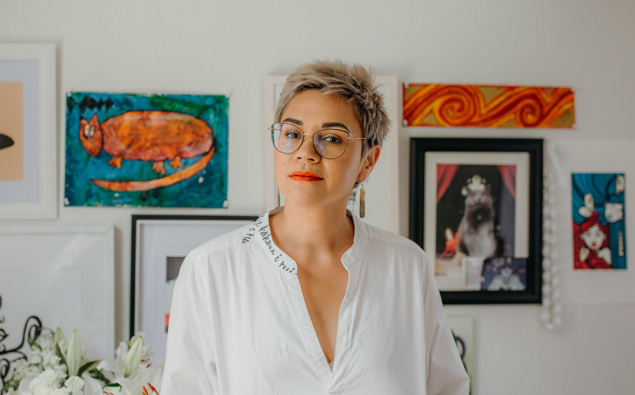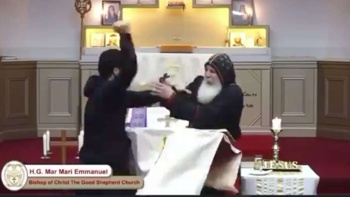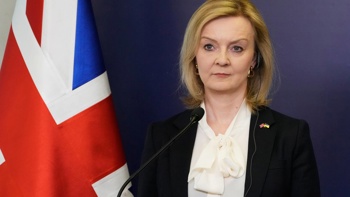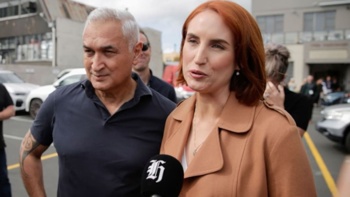It was the height of Covid-19 in 2020 when Emma Espiner graduated from medicine school.
The broadcaster, political commentator and now-surgeon had mixed emotions about being thrown into work at Middlemore Hospital in the middle of a global pandemic.
“It was really frightening, but it was also really interesting because I was glad to have something useful to do,” she told Real Life with John Cowan on Sunday night.
“Now that we’ve largely come out of Covid, the flow-on effects on people we’re going to see for years to come – not just the waitlists and practical things, but the psychological impact on people and their relationships and lives will be huge.”
Despite the difficulties of work in a busy hospital, Dr Espiner’s job enables her to walk the talk and things that matter to her – in particular, addressing health inequities among Māori.
At Middlemore Hospital, she gets to “see [her] purpose every day”, and works alongside like-minded people who are there because they care about the same things.
“There’s a project we’re working on… In an attempt to reduce our waitlists, we’re doing additional operating lists on a Saturday, and there’s an equity prioritisation there,” she said.
“I was able to see that from its inception, when it was proposed as a business case, right through to now volunteering to do these when I’m not already rostered on.
“It’s just so encouraging to see, one by one, patients that we can help and do something for. This is just in our hospital, but it really helps to offset that structural frustration that things aren’t moving fast enough.”
Dr Espiner wrote extensively about her new career and the issues she’s passionate about in her recently published memoir, There’s A Cure for This, which she says has been “a shortcut to building relationships with people”.
“People often talk about writing as therapy, but I disagree with that. Therapy is therapy. Writing is about making sense of your own life as a story.
“The nice thing about telling your own story is that people come to you with their stories. Nobody ever comes up to me and says ‘I read this thing about you, and I’m really interested in it’. They say ‘I read this thing about you, and I want to tell you this similar thing that happened to me’.”
“I love that, because relationships are the fuel for me in all of the different careers and every aspect of my life.”
As the daughter of a Māori father and a Pākehā mother, Dr Espiner describes herself as the “irreparable collision between Treaty partners”. That identity is useful to explore a lot of things she’s concerned about in her writing.
“Inequities in the health system, what things will look like for my daughter and her generation when they grow up, and how we incorporate the knowledge systems of my culture into sticky, contemporary issues like climate change and health.”
Dr Espiner says she loves both the Pākehā and Māori parts of herself, and considers it a superpower to be able to draw on the strengths of both. But she still feels uncomfortable with her cultural identity at times.
“Sometimes we talk about being too Māori for Pākehā or not Māori enough for Māori – that’s something a lot of us contend with. But talking about that does help us to negotiate that and not feel so alone in it.”
For Dr Espiner, spirituality is another part of her identity, as it’s deeply engrained in tikanga Māori. She loves karakia, as they “always serve a purpose and scaffold events and emotions” – but she no longer regards organised religion positively.
“That’s to do with religion as a colonising force, not just in New Zealand but internationally,” she told Cowan.
“My Catholic heritage is fraught as well. My grandmother’s Catholicism is a big part of why she rejected my mother when she came out as a lesbian. So any institution that would influence someone to exclude a loved one based on their identity is not something I feel that positive about.
“But then again, both grandmothers had hard lives and found their faith to be of enormous comfort to them. So, I wouldn’t take that away from them, particularly Mum’s Mum, who lost a number of her children.
“If it wasn’t for her faith, that would’ve been much harder to come to terms with.”
-Matt Burrows
Broadcaster and political commentator Emma grew up in Wellington. She graduated with a Bachelor of Medicine and a Bachelor of Surgery from the University of Auckland in 2020. She is a columnist for Newsroom and hosts a podcast Getting Better for Radio New Zealand about Māori health equity.
In 2020, Emma won Opinion Writer of the Year at the Voyager Media Awards. Emma's memoir, There’s a Cure for This: A Memoir, was released on May 9, 2023.
Take your Radio, Podcasts and Music with you









